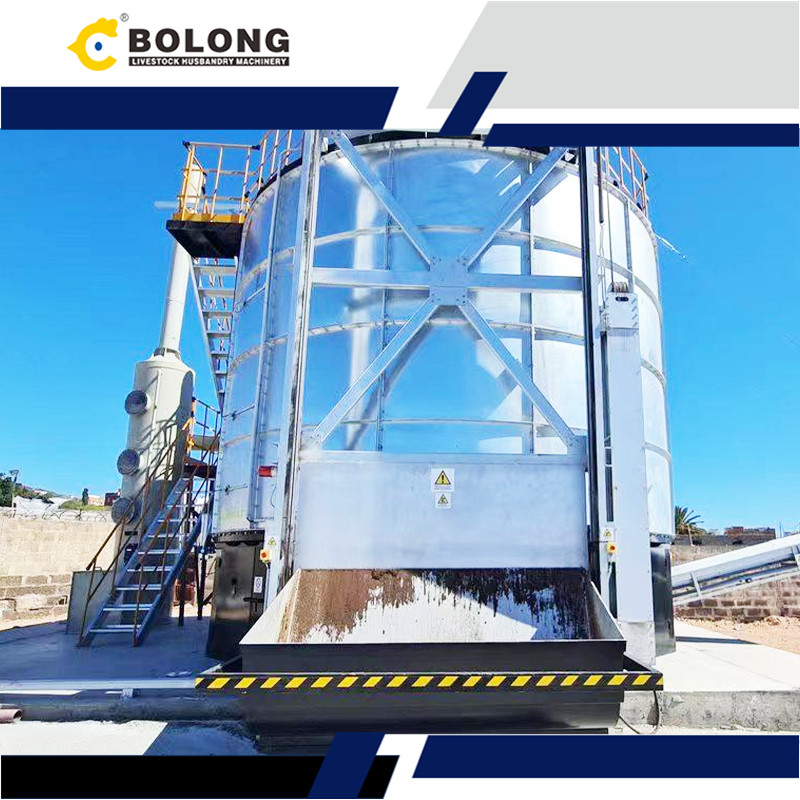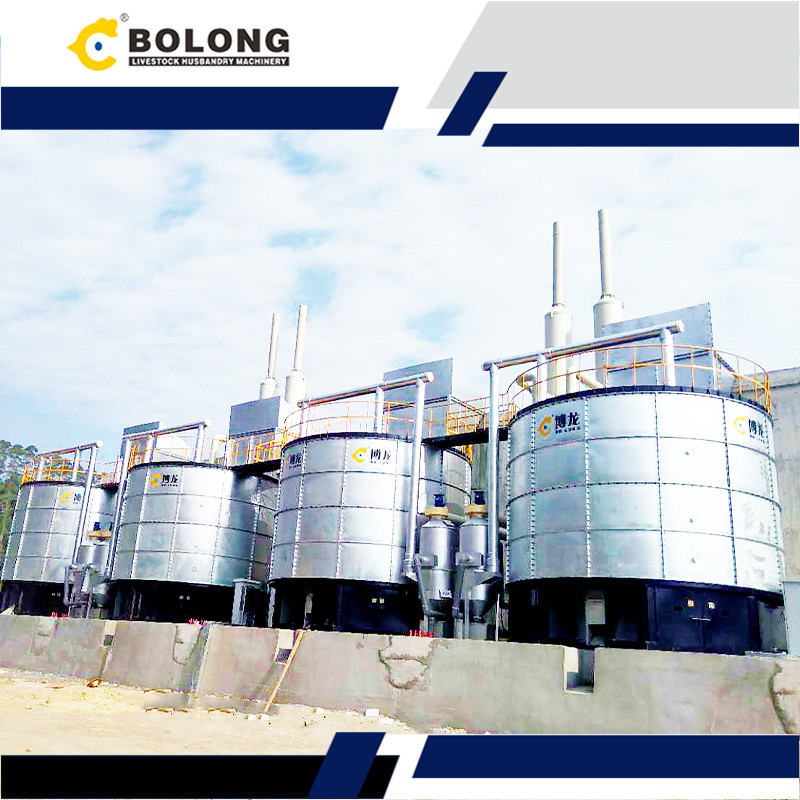The International Livestock Expo – ILDEX PHILIPPINES 2025 is set to take place from August 27–29 at the SMX Convention Center in Manila, Philippines! Henan Bolong will showcase its core equipment and livestock manure solutions at Booth No. C11.
Learn everything you need to know about composting fresh manure in this comprehensive guide. Discover the ideal composting time, techniques, and tips for efficient composting. How long does fresh manure take to compost? Find out the answer and more here.
Composting is a sustainable and eco-friendly way to enrich soil, recycle organic matter, and promote healthier plant growth. Among the various composting materials, fresh manure is highly beneficial due to its nutrient-rich composition. However, many gardeners and farmers wonder, “How long does fresh manure take to compost?” In this article, we will explore the ins and outs of composting fresh manure, providing valuable insights, first-hand knowledge, and credible sources to guide you through the process.
Composting fresh manure can be a rewarding but patience-demanding process. The time it takes to compost fresh manure depends on several factors, including:
Type of Manure: Different types of manure, such as horse, cow, chicken, or rabbit, have varying compositions, affecting the composting time.
Carbon-to-Nitrogen Ratio: The carbon-to-nitrogen (C/N) ratio in the compost pile influences the decomposition rate. A balanced C/N ratio of around 30:1 to 40:1 expedites the process.
Composting Techniques: The composting method employed, whether traditional composting, hot composting, or vermicomposting, affects the duration.
Compost Pile Size: Larger compost piles often heat up faster, accelerating decomposition.
Environmental Conditions: Temperature, humidity, and aeration play pivotal roles in the composting process.
Frequency of Turning: Regularly turning the compost pile promotes aeration and accelerates decomposition.
Addition of Compost Accelerators: Using compost accelerators or activators can speed up the composting process.
Now, let’s delve deeper into each of these factors and understand their impact on the composting timeline.
Different animals produce manure with varying compositions. For instance, horse manure is rich in nitrogen, while cow manure has a balanced C/N ratio. Chicken manure, on the other hand, is high in nitrogen but requires careful composting to avoid odor issues. Understanding the unique properties of each manure type is crucial for efficient composting.
The C/N ratio is a vital aspect of composting. The decomposition process requires a proper balance of carbon-rich (browns) and nitrogen-rich (greens) materials. Browns include straw, dry leaves, and wood chips, while greens encompass kitchen scraps and fresh manure. Maintaining the right ratio ensures a favorable environment for microorganisms, which break down organic matter.
Different composting techniques suit various situations. Traditional composting involves layering organic matter and letting it decompose naturally. Hot composting, on the other hand, requires higher temperatures, reaching 130-150°F, which results in faster composting. Vermicomposting, using worms to break down organic matter, is another effective method that can expedite the process.
The size of the compost pile can influence its temperature and decomposition rate. Larger piles retain heat better and decompose faster than smaller ones. However, managing larger piles might require more effort and space.
Environmental factors, such as temperature and humidity, significantly impact composting. Warm and moist conditions facilitate microbial activity, accelerating decomposition. In colder climates, insulating the compost pile can help maintain optimal temperatures.
Turning the compost pile ensures uniform decomposition and proper aeration. Regularly turning the pile allows oxygen to penetrate, preventing the formation of anaerobic conditions, which could slow down composting.
Compost accelerators, also known as compost activators, contain beneficial microorganisms that hasten decomposition. These products can be valuable, especially when composting materials are harder to break down.
By understanding and optimizing these factors, you can tailor your composting process to achieve quicker results with fresh manure.
Now that we have covered the factors affecting composting time, let’s dive into a step-by-step guide on how to compost fresh manure efficiently:
Choose the type of manure that suits your gardening needs and composting capabilities. Horse, cow, chicken, and rabbit manure are common choices. Avoid using manure from carnivorous animals, as it may contain harmful pathogens.
Select a suitable location for your compost pile. Ensure it is on level ground and receives adequate sunlight. Consider using a compost bin or build a compost heap with a base layer of coarse materials like straw or wood chips to promote drainage.
Gather additional organic materials like straw, dry leaves, kitchen scraps, and garden waste. Creating a balanced C/N ratio is essential for successful composting.
Begin layering the compost pile with a mixture of fresh manure, greens, and browns. Aim for thin layers to maximize aeration. Avoid adding large chunks of material that might slow down decomposition.
Keep the compost pile consistently moist, similar to a wrung-out sponge. Regularly turn the pile using a pitchfork or compost aerator to ensure proper aeration and even decomposition.
Frequently monitor the compost pile’s internal temperature and moisture levels. Adjust the pile as needed by adding more greens, browns, or water to maintain the ideal conditions.
After several weeks, the compost should begin to resemble dark, crumbly soil, with a pleasant earthy smell. Perform a simple germination test to ensure that no harmful pathogens remain.
Once the compost is ready, let it cure for a few weeks to stabilize the nutrient content. After curing, it is ready to be added to your garden soil.
Q: Can I use fresh manure directly on my plants without composting?
A: It is not advisable to use fresh manure directly on plants as it may contain harmful pathogens and high levels of nitrogen that can damage roots. Composting is essential to break down the manure and make it safe for use.
Q: How often should I turn my compost pile?
A: Turning the compost pile every 2-3 weeks helps maintain proper aeration and speeds up the composting process.
Q: Can I compost mixed manure from different animals?
A: Yes, you can compost mixed manure; however, it is best to achieve a balanced C/N ratio by adding appropriate amounts of browns and greens.
Q: Why does my compost pile smell bad?
A: A foul smell indicates anaerobic conditions in the pile. Ensure proper aeration by turning the compost more frequently and adding dry materials.
Q: Can I use compost accelerators with fresh manure?
A: Yes, compost accelerators can be used with fresh manure to speed up decomposition. Follow the product’s instructions for the best results.
Q: How can I tell when the compost is ready?
A: The compost is ready when it has a dark, crumbly texture and an earthy smell. Perform a germination test to ensure it is free of harmful pathogens.
Composting fresh manure is a rewarding process that yields nutrient-rich humus for your garden. By understanding the factors that influence composting time and following a systematic approach, you can efficiently transform fresh manure into valuable compost. Remember to maintain a balanced C/N ratio, provide adequate moisture and aeration, and be patient as nature works its magic. So, how long does fresh manure take to compost? The answer depends on several variables, but with the right techniques and care, you can achieve compost within a few months. Happy composting!

The International Livestock Expo – ILDEX PHILIPPINES 2025 is set to take place from August 27–29 at the SMX Convention Center in Manila, Philippines! Henan Bolong will showcase its core equipment and livestock manure solutions at Booth No. C11.

